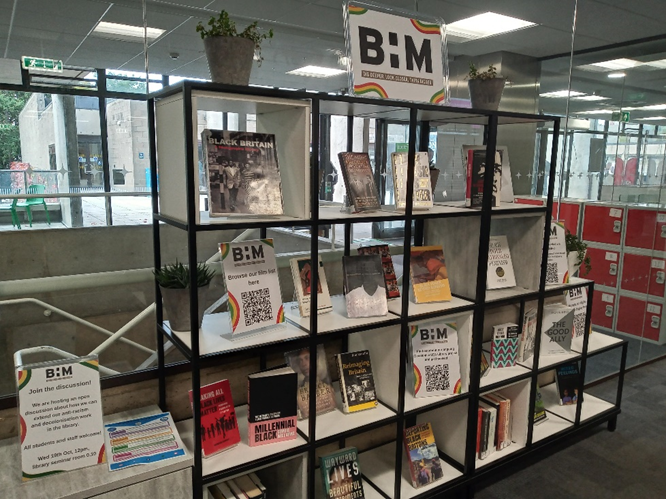Fig. 1 Black History Month display at UEA Library
How libraries – and librarians – are grappling with decolonisation and why this matters
By Jenny Whitaker and Grant Young
This is probably self-evident – especially to historians – but libraries are not neutral entities. They are highly constructed. They have legacies and biases and have been both beneficiaries and instruments of colonialism. They amplify certain voices in the literature and neglect or supress others.
While much of this has been shaped by others in the knowledge economy – authors, publishers and their distributors, researchers and teachers, with their interests and needs – librarians too have played a role in this.
Increasingly, over the past few years, librarians have been thinking about and working towards “decolonising” the library and developing a more critical approach to librarianship, acknowledging our conscious and unconscious biases and that we oversee collections and spaces and practices that are in need of some critical attention. We are moving beyond just putting up Black History Month book displays and thinking about what we’re doing for the other 11 months of the year- what happens when the books disappear back onto the shelves.
While curricula and research interests pivot or evolve, an academic library will still strongly reflect its collecting history and its past teaching and research activities. There are layers and structures within libraries that will reassure historians and might delight those interested in undertaking bibliographic archaeology, but will easily trip or mislead an undergraduate student or a less critical library user. There may be an odd balance to the collection. Or significant gaps. There are resources that need careful and critical handing, providing information that is sexist and racist and homophobic or factually incorrect or contentious. And there are other resources that are very useful but have been put in places that make them very difficult to find – perhaps because of arcane classification systems or subject headings we use or because they only exist in the library’s digital spaces!
Many libraries in the UK and US and elsewhere are addressing these issues in critical and creative ways. Sometimes this is situated within a broader EDI (Equality, Diversity and Inclusion) framework, but increasingly there are specific decolonisation or anti-racism strands, usually in collaboration with wider institutional or student-led efforts to ‘decolonise the curriculum’. Within UEA, the library works with Decolonising Network Working Group, Decolonise UEA Society, DecoloniseHUM, and the Vice-Chancellor’s Taskforce on Tackling Racism.
Likewise, libraries are working together to share best practice, build resource/ evidence bases and develop new activities. Two recent books that provide good coverage of these development within libraries are Narrative Expansions (https://www.facetpublishing.co.uk/page/detail/narrative-expansions/?k=9781783304974) and Knowledge Justice (https://direct.mit.edu/books/oa-edited-volume/5114/Knowledge-JusticeDisrupting-Library-and).
UEA library began working on decolonisation activities in early 2019, in response to staff and student requests. This was given more shape through the establishment of a Library Anti-Racism group. We have constructed a library guide on decolonisation and initiated a campaign in September 2021 to elicit book suggestions and feedback, enabling anybody to anonymously alert us to issues, challenge current practices and propose improvements. Not only does this give essential voice to our users, and a range of perspectives, it also encourages critical engagement with the library as a contested/flawed space, a product of its history and vulnerable to its own biases.
This year, along with nine other UK university libraries, we took part in a qualitative research project which explored the lived experience of library services for students from Black backgrounds, and provided a framework of key issues and potential future initiatives emphasised by the students themselves. This highlighted a number of areas for further work, including attention to library spaces, staff diversity and approachability, and ensuring that Black voices are well represented and easily found.
If the practical legacy of an outdated classification system is that historically marginalised voices continue to be marginalised, an essential role of library decolonisation work is countering this by foregrounding these voices. Physical displays, such as the BHM display currently in our library foyer (pictured above), are a positive tool for highlighting these resources. However, as the students emphasised to us, it is essential this work is a permanent, year-round commitment.
While running book campaigns and highlighting resources is crucial and good work, it is just the starting point for a continual, reflective process which is inclusive and collaborative in nature. Decolonising the library should destabilise the relationship between the library as gatekeeper of knowledge and the user as (passive) recipient of knowledge. We are seeking to enable library users to be active participants in building the collection and creating a space within which they feel they belong.
Jenny Whitaker and Grant Young are UEA (University of East Anglia) librarians

Leave a comment